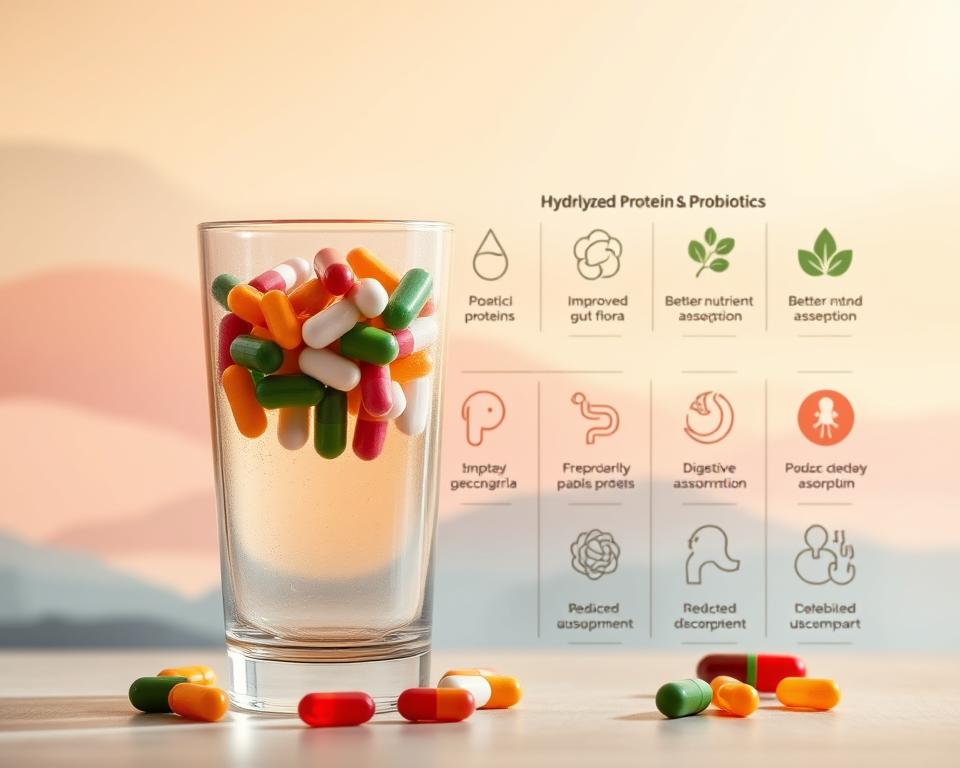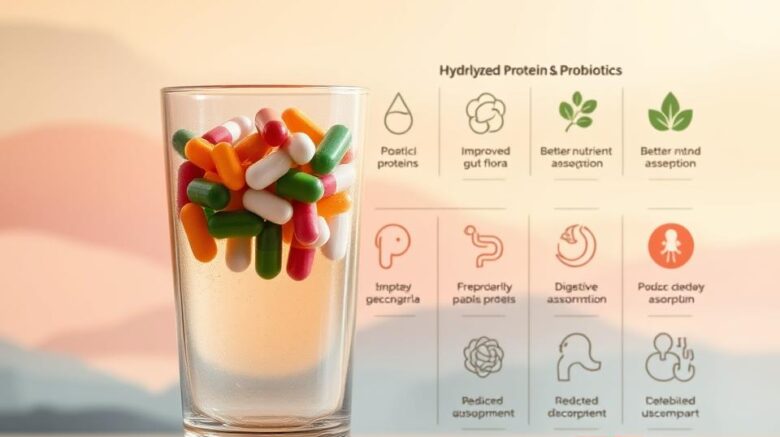Ease Gassiness with Hipp Comfort Preparation | Expert Tips
Have you found yourself looking for a solution to your baby’s digestive unease? The pursuit can appear daunting, with countless infant formulas available. Hipp Comfort formula emerges as a beacon of hope. It is crafted to promote digestive comfort and alleviate gassy discomfort. This article will present expert advice and insights. You’ll uncover about digestive distress and the particular advantages of Hipp formula mixing instructions, plus methods for optimizing your baby’s gut health.
Core Lessons
- Hipp’s Comfort blend is created to aid ease tummy distress in infants.
- Understanding digestive discomfort is crucial for successful management.
- Proper formulation and feeding instructions maximize the formula’s advantages.
- Checking in with pediatricians can advise you in picking the optimal infant formula.
- Shifting to the Hipp Comfort formula should be executed mindfully and considerately.
Grasping Digestive Distress in Infants
Tummy upset is a frequent condition that impacts numerous newborns, marked by prolonged tears. This situation leaves families and babies anxious. Comprehending colic involves identifying its signs, time span, and possible origins.
What is Colic?
Digestive distress is described as intense crying episodes in a healthy infant. These spells usually start when the baby is approximately two weeks old and may continue up to three or four months. The crying is often inconsolable and happens mostly in the late day or evenings. The precise reasons behind colic are not fully understood, but they are thought to be related to the baby’s developing digestive system facing irritation.

Colic Signs and Timeline
Colic signs include indicators of digestive discomfort, such as tight fists, back arching, and extreme fussiness. These episodes can persist for hours, adding to caregivers’ concern. Typically, colic signs peak at approximately six weeks of age and subside as the infant grows older.
Colic Triggers
Identifying the specific reasons of colic is tricky. However, several common factors are noted:
- Trapped air, leading to significant discomfort.
- Immature gut function due to an immature digestive system.
- Sensory overload or external stress factors that may affect the baby.
Comprehending these reasons can aid parents in handling their baby’s persistent tears and finding effective soothing techniques.
Getting to Know Hipp Comfort Formula
Hipp Comfort formula is a leading choice for parents tackling infant colic. It’s engineered with gut health in mind, making meal times easier. It uses unique components for babies who need extra care.
Why Hipp Comfort Stands Out
It’s more than a typical baby formula; it focuses on digestive issues. Broken-down proteins aid gut processing, minimizing gas and colic symptoms. Being an organic formula, it’s free from added sugars, soy, or synthetic additives. This ensures your baby gets clean, safe nutrition.
Hipp Comfort’s Formula Components
The Hipp Comfort formula’s key ingredients support balanced feeding. Components include:
- Skimmed cow’s milk
- Beta Palmitic Acid
- Prebiotics and beneficial bacteria for microbial balance
- Essential vitamins and minerals for overall growth
Together, these ingredients formulate a formula that nurtures the digestive system and reduces colic discomfort. Parents can trust Hipp Comfort to provide adequate nutrition.
How Hipp Comfort Formula Helps Manage Colic
Tackling infant colic is often a challenging task for parents. The Hipp Comfort Formula is specially crafted to alleviate the discomfort colic brings. It does so with a blend of hydrolyzed proteins, prebiotics, and probiotics. These ingredients are key for supporting digestive health and easing colic symptoms.
How Hydrolyzed Proteins Help
Hipp Comfort Formula’s hydrolyzed proteins are simplified into tiny pieces, making them more digestible. This treatment helps reduce gas and discomfort, which are common in colicky infants. By making the proteins easier to digest, the formula aids managing colic and relieves the uncomfortable symptoms.
Dietary fibers in Hipp Comfort Formula nourish the beneficial bacteria in the gut, enhancing their proliferation. Meanwhile, probiotics help keep the gut’s bacterial balance, vital for good digestive health. The combined action of prebiotics and probiotics reduces fussiness and fussiness in babies, offering parents an reliable solution for colic relief.
Best Practices for Hipp Comfort
Parents must handle Hipp Comfort formula with care for their child’s well-being. It’s essential to follow accurate guidelines for mixing the formula.
Mixing Instructions
Begin by washing your hands thoroughly to prevent germs. Ensure all feeding equipment is sterile. Then, boil water and let it cool to the correct temperature before mixing it with the formula powder.
Accurate measurements of water and formula are crucial for your baby’s nutritional needs. Always refer to the packaging for the precise measurement ratios. Discard any unused formula after feeding to avoid bacterial growth.
Feeding Recommendations
Serving directions vary with your baby’s developmental stage and weight. Pediatricians can provide customized advice, so it’s advisable to consult them. Observe how your baby tolerates the formula, and adjust servings to keep them satisfied and healthy.
It’s essential to follow Hipp Comfort formula guidelines for your child’s digestive health and happiness.
Potential Side Effects of Hipp Comfort Formula
Parents should be aware Hipp Comfort Formula is generally well tolerated by infants, yet some may encounter mild digestive issues. These can manifest as changes in stool and slight fussiness. Such effects are often temporary, easing as infants adapt.
Common Reactions and Adjustments
The transition can be easy for many, but some infants might face digestive discomfort. Parents should watch for signals like:
- Increased gas or abdominal swelling
- Altered stool texture
- Periodic irritability
Though these are typically minor, keeping an eye on them is important. Time is key while infants grow used to their new diet.
When to Consult a Pediatrician
At times, seeking a pediatrician’s advice is necessary. This is especially true if symptoms include:
- Persistent diarrhea
- Frequent vomiting
- Excessive fussiness or crying that lasts more than usual
Also, consider your child’s nutritional requirements, including lactose intolerance, as Hipp contains lactose. Timely response is vital for their well-being during formula changes.
Formula Comparison
In the hunt for baby formulas, parents seek options that help their infants, particularly for colic issues. Hipp Comfort emerges as a front-runner with its unique mix aimed at easing infants’ digestive woes. It’s different from other formulas due to its mild ingredients and hydrolyzed proteins, making it an attractive option for babies with delicate tummies.
How Hipp Comfort Compares
Hipp Comfort stands out in the competitive baby formula market with its gut-friendly formula. Unlike others, it contains targeted components to aid colic relief. Many formulas cover wider uses and may not zero in on colic. Hipp Comfort, however, is specifically made for infants dealing with gas and fussiness, offering a mild but effective remedy.
HA Formulas vs. Comfort
The HiPP HA range offers hypoallergenic formulas for infants prone to allergies, not necessarily colic. These formulas aim to minimize allergy risks, not digestive issues. For parents seeking a formula for digestive support, Hipp Comfort is the preferred choice. It’s formulated specifically to alleviate colic symptoms efficiently.
Other Colic Relief Methods
Apart from using formula, there are several calming strategies to manage a colicky infant. Finding effective tactics brings much-needed comfort to both baby and parents. These methods not only soothe but also increase the infant’s feeling of safety during difficult times.
Soothing Strategies
There are multiple effective soothing approaches for soothing infants. Parents have found these practices beneficial:
- Swaddling the baby in a cozy wrap to create a sense of security
- Rocking gently the baby to and fro to provide comfort
- Using soothing sound machines to recreate the womb environment
- Providing pacifiers, which can help with self-soothing
- Taking the baby on short car rides, as the movement may calm them
Supporting Parents
Handling colic involves more than soothing techniques. The caregiver support is key in tackling the difficulty of caring for a fussy baby. By dividing responsibilities and finding emotional support, a nurturing setting is created.
- Joining parenting groups can offer helpful guidance and camaraderie.
- Practicing self-care ensures parents can maintain their health while caring for their baby.
- Fostering open communication among partners can lower stress and improve teamwork.
Importance of Consultation with Pediatricians
Visiting a child specialist is essential for understanding infants’ unique needs, particularly in managing conditions like colic. Pediatricians, with their extensive expertise, help parents select the right formula. They ensure choices cater to the baby’s individual needs. Expertise in infant nutrition, particularly when considering specialized formulas like Hipp Comfort, is vital.
Doctor-Recommended Formula Selection
Pediatricians evaluate each baby’s health to recommend optimal nutrition and digestibility. They consider allergies and gastrointestinal sensitivity. This helps parents choose formulas that ensure comfort and well-being. Thanks to their guidance, infants get the right nutrition early on.
Developmental Check-Ups
Regular health check-ups are key to tracking an infant’s growth. These visits let pediatricians evaluate babies’ responses to their formulas. They may recommend changes as nutritional needs change. Continual monitoring gives parents peace of mind, ensuring their infants flourish during critical stages.
Purchasing Options
Parents seek out finding a trusted retailer for Hipp Comfort formula to ensure their babies receive proper nourishment. There are numerous organic baby formula retailers. However, Love Organic Baby shines through with its commitment to safety and quality products for sensitive infants.
Leading Retailers
- Love Organic Baby store: Known for its commitment to quality and customer satisfaction, it features a range of organic baby formulas, including Hipp Comfort.
- Whole Foods Market: This retailer focuses on organic options, catering to well-being-focused parents with a solid selection of baby formulas.
- Target: Known for its wide-ranging inventory, Target stocks various organic baby formulas, including trusted names like Hipp.
Why Choose Love Organic Baby?
Many reasons make Love Organic Baby a trusted retailer for parents. It only stocks high-quality organic formulas that adhere to rigorous safety criteria. Love Organic Baby also provides comprehensive details on each product, helping parents make informed decisions regarding Hipp Comfort purchases.
Love Organic Baby makes purchasing nutritional products easy with its e-commerce platform and responsive customer service. Their platform ensures your baby’s health needs are conveniently met.
Switching to Hipp Comfort
Switching formulas can be a challenge for both babies and parents. Transitioning to Hipp Comfort requires a careful approach for a seamless switch. By recognizing signs of readiness, parents can ensure a more comfortable feeding experience.
Transitioning from Another Formula
Switching formulas should be gradual to prevent digestive issues. Start by mixing the current formula with Hipp Comfort. Over several days, gradually increase the Hipp Comfort amount, observing your baby’s response. This gentle method eases discomfort and helps your baby adjust to the new formula.
Signs Your Baby is Ready for Hipp Comfort
Parents should look out for clear signs that their baby is prepared for Hipp Comfort. These signs may include:
- Increased fussiness during or after feedings.
- Frequent signs of gas discomfort or colicky behavior with the existing preparation.
- A noticeable improvement in comfort after introducing Hipp Comfort.
Being attentive to these indicators helps parents make an informed switch. Consulting a pediatrician offers further guidance, ensuring optimal care for your baby.
Final Thoughts
Handling colic is a common challenge for many parents. The Hipp Comfort formula provides a solution with its specially designed ingredients. It not only eases colic symptoms but also promotes overall baby comfort. This makes it a trusted choice for infant care.
Parents should make an effort to learn about their baby’s needs in dealing with colic. Speaking with pediatricians can improve your care strategy, ensuring your baby’s growth and health during challenging times. The Hipp Comfort formula offers caregivers reassurance, aiding their babies’ comfort.
The value of a knowledgeable, hands-on approach is vital. For parents facing a colicky infant or seeking the best feeding solution, Hipp Comfort formula is an efficient aid. It simplifies the baby-care experience significantly.
